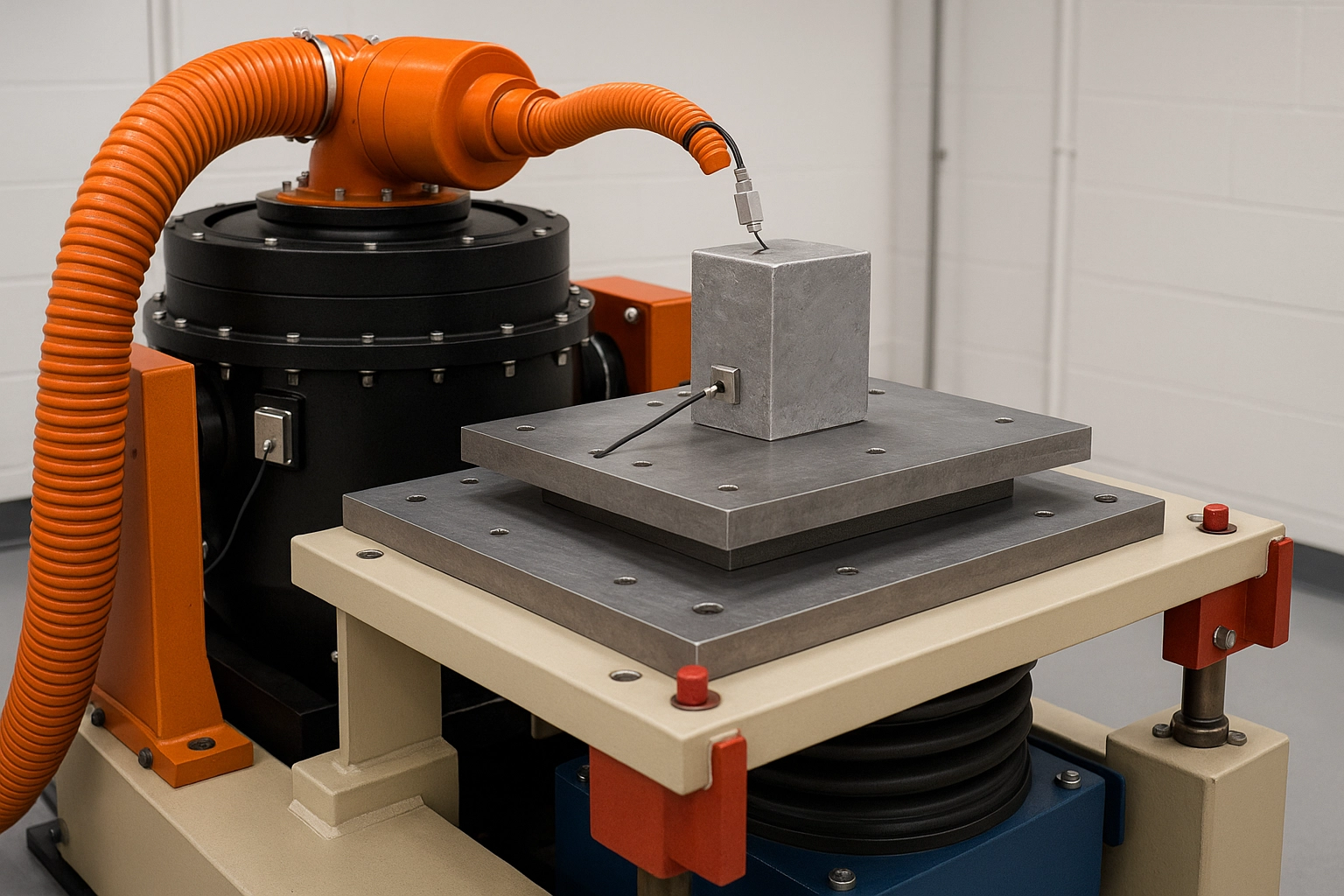VW TL 82150 Vibration Testing for Vehicle Electrical Harnesses
The Volkswagen TL 82150 vibration testing standard is a critical component of automotive quality assurance, ensuring the reliability and durability of vehicle electrical harnesses under simulated road conditions. This test evaluates how well the harnesses can withstand mechanical shock and vibrations that occur during normal driving. The standard is especially important in the development phase to identify potential design flaws or material weaknesses before mass production.
The process involves placing a harness on a vibration testing machine, which replicates the harsh environment of actual road conditions. The machine simulates various types of vibrations including those from potholes, uneven surfaces, and other irregularities encountered during driving. By subjecting the harness to controlled levels of shock and vibration, engineers can observe how well it performs under stress.
The test is not just about mechanical resilience; it also examines electrical performance. A properly functioning harness must maintain signal integrity and power delivery without degradation or failure. This includes checking for insulation resistance, capacitance changes, and continuity throughout the entire testing period. Properly designed harnesses should show minimal change in these parameters even after significant exposure to vibration.
Compliance with VW TL 82150 ensures that the electrical systems of Volkswagen vehicles meet stringent quality standards set by the manufacturer. Non-compliance can lead to safety hazards, reduced performance, and increased warranty costs for manufacturers. By adhering to this standard during development and production phases, automakers can significantly reduce these risks.
Testing is typically conducted in specialized laboratories equipped with advanced vibration testing machines capable of replicating real-world conditions accurately. These machines often have adjustable frequency ranges and amplitudes allowing precise control over the type and intensity of vibrations applied to the harnesses being tested.
The results from VW TL 82150 tests are crucial inputs into design improvements for future models. Engineers analyze any failures or issues identified during testing to refine designs, select better materials, optimize assembly processes, and enhance overall product quality. This iterative process helps ensure that each successive model performs better than its predecessors.
Understanding the importance of this test allows stakeholders such as quality managers, compliance officers, R&D engineers, and procurement teams to appreciate why investing in thorough testing is vital for maintaining high standards within the industry.
Why It Matters
The Volkswagen TL 82150 vibration testing standard plays a pivotal role in ensuring that vehicle electrical harnesses are robust enough to handle the rigors of daily use. Electrical harnesses form an integral part of modern vehicles' electronic systems, connecting various components like sensors, actuators, and power distribution units. Any malfunctioning in these connections can lead to serious safety concerns.
- Ensures consistent signal transmission across all critical components
- Prevents short circuits or open circuits that could affect vehicle performance
- Maintains proper power supply to essential systems during dynamic driving conditions
- Avoids premature wear and tear of sensitive electronic parts due to mechanical stress
In addition, compliance with this standard helps protect both consumers and manufacturers by reducing the likelihood of recalls and product liability claims. It also enhances brand reputation by demonstrating commitment to safety and quality.
Benefits
- Enhanced Safety: Ensures that electrical harnesses function correctly under extreme conditions, preventing potential accidents caused by system failures.
- Improved Durability: Identifies weak points in the design or materials used, allowing for improvements before they become critical issues.
- Potential Cost Savings: Early detection of problems through testing reduces costly repairs and replacements later on.
- Better Customer Satisfaction: Reliable products lead to satisfied customers who trust their automaker's commitment to excellence.
The benefits extend beyond just the product itself; they contribute positively towards sustainable development goals by promoting efficient use of resources throughout the lifecycle of a vehicle. Compliance with standards like VW TL 82150 supports environmental protection efforts through reduced waste and energy consumption during manufacturing processes.
Use Cases and Application Examples
| Use Case | Description |
|---|---|
| Development Phase Testing | Identifies potential issues early on so that they can be addressed before large-scale production begins. |
| Prototype Evaluation | Determines whether new designs meet required specifications and performance levels. |
| Supplier Quality Assurance | Evaluates components supplied by external manufacturers to ensure their compatibility with the overall vehicle design. |
| Production Line Monitoring | Continuously monitors ongoing production processes to maintain consistent quality standards across all units produced. |
These use cases demonstrate how VW TL 82150 vibration testing is integral throughout the entire lifecycle of a vehicle's electrical harness. From initial design concepts through final assembly, this standard provides valuable insights that contribute to creating reliable and safe products.





